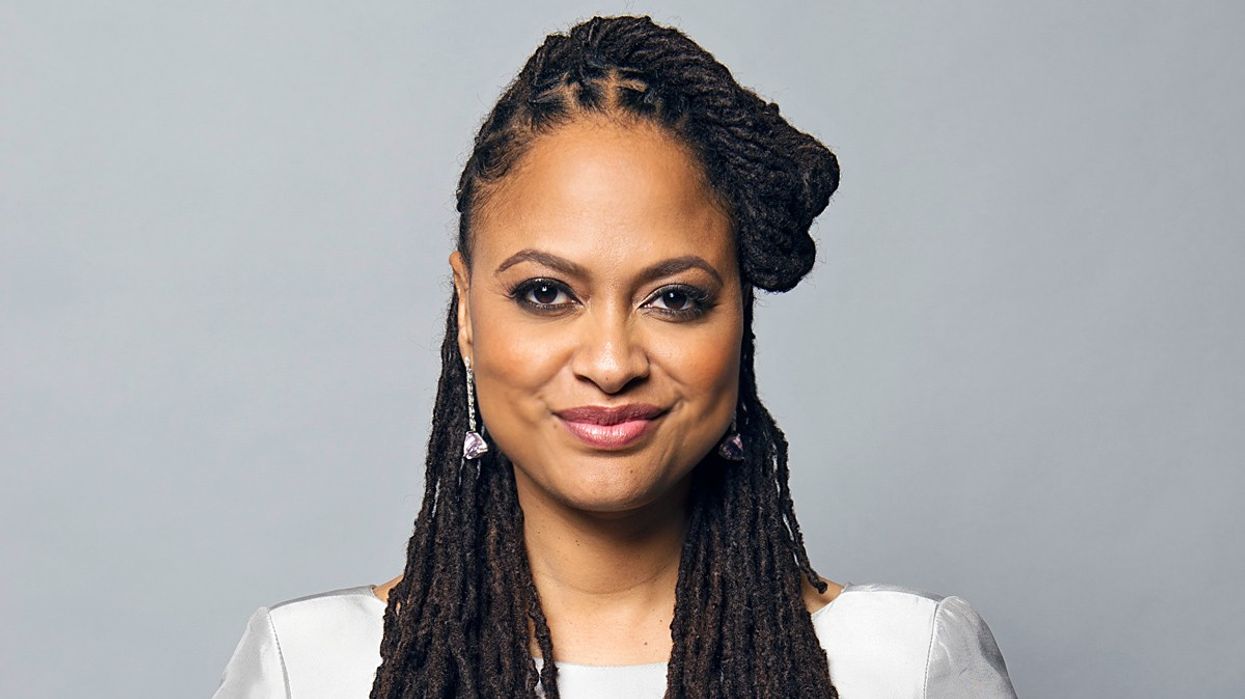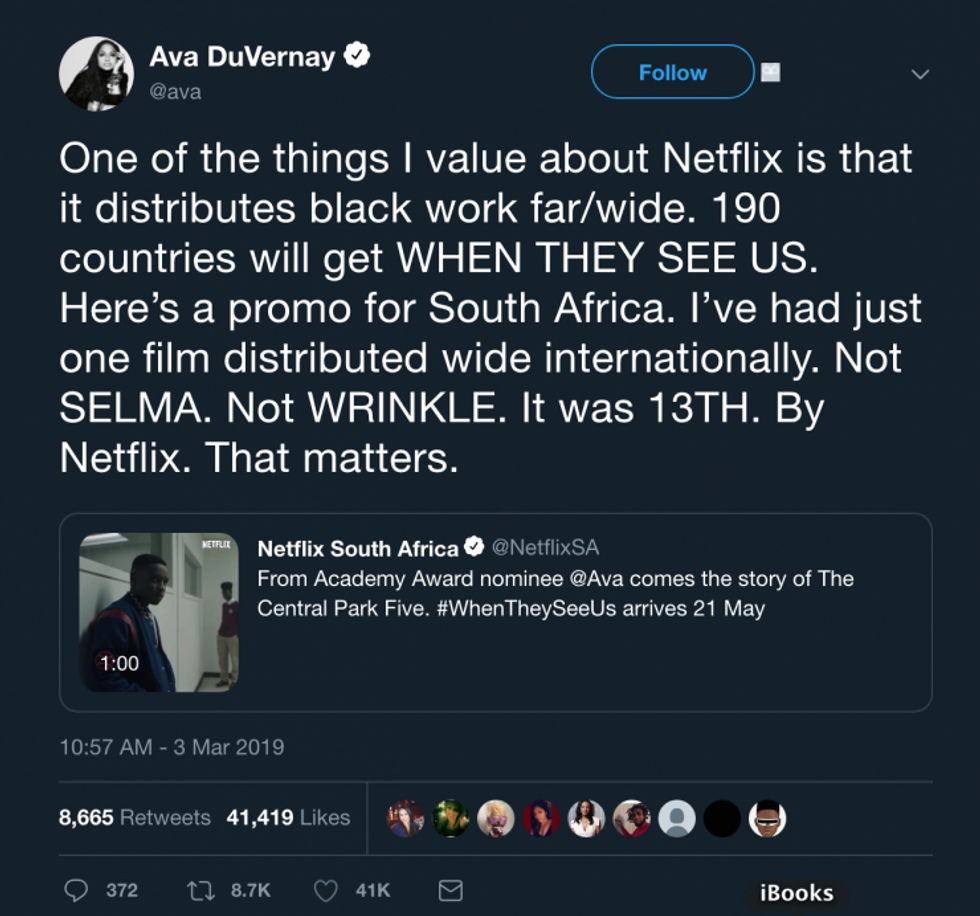Ava DuVernay Pushes Back at Spielberg's Claims Over Netflix
The debate grows more intense.

Just last week we revealed the trailer for director Ava DuVernay's latest four-part series, When They See Us, set to debut on Netflix later this year.
Now the filmmaker has come to the defense of Netflix after the streaming service had come under attack by Steven Spielberg in the seemingly neverending debate over the value and threats of digital streaming.
Other filmmakers have already spoken out on the subject, including Paul Schrader and Sean Baker. Now DuVernay, who is very much a prominent figure in the Netflix wheelhouse, has chosen to speak out over those who claim that Netflix is bad for theatrical business. Is it as simple as that? DuVernay doesn't think so.
Access is key to debates like this: who gets to see your film? For how much of an admission fee? Over what platform? By denying a piece of art the ability to stream, does that decision come from a place of gatekeepers looking to limit access to underserved cinemagoers?
As we've found out, it's a complicated subject, one that may only grow as the days move forward. What's your opinion on the matter? Let us know in the comments below.














